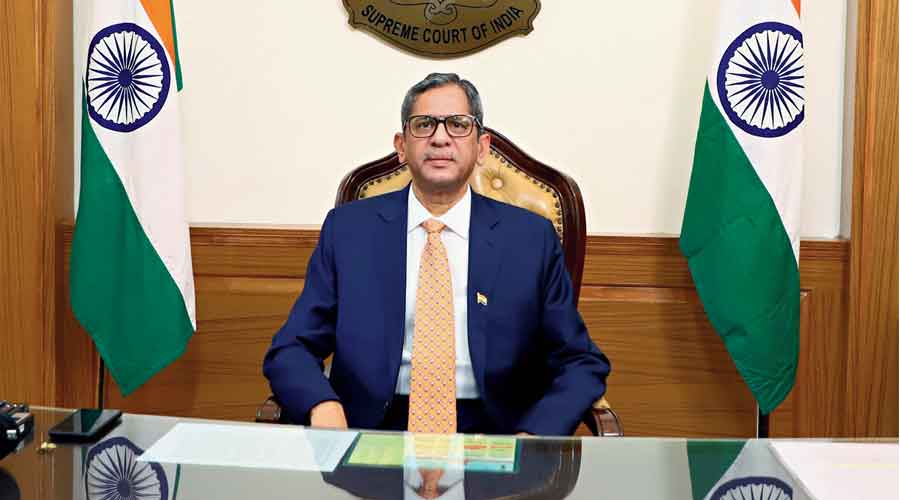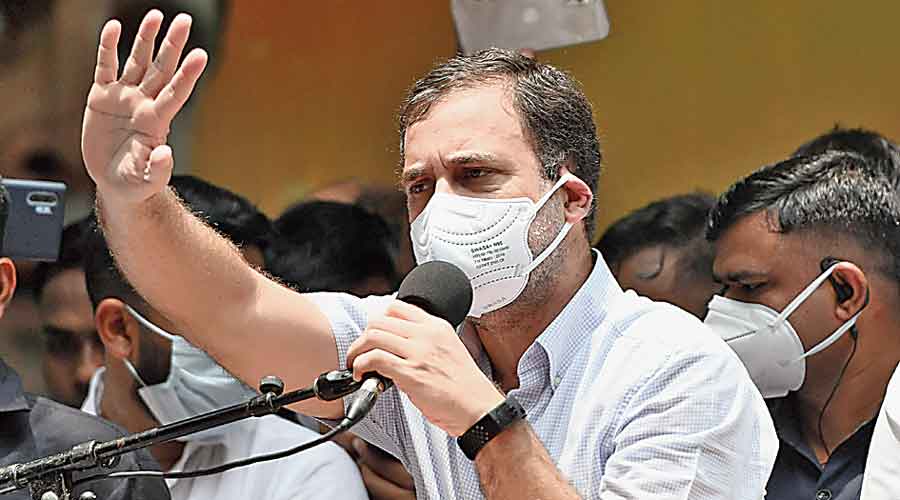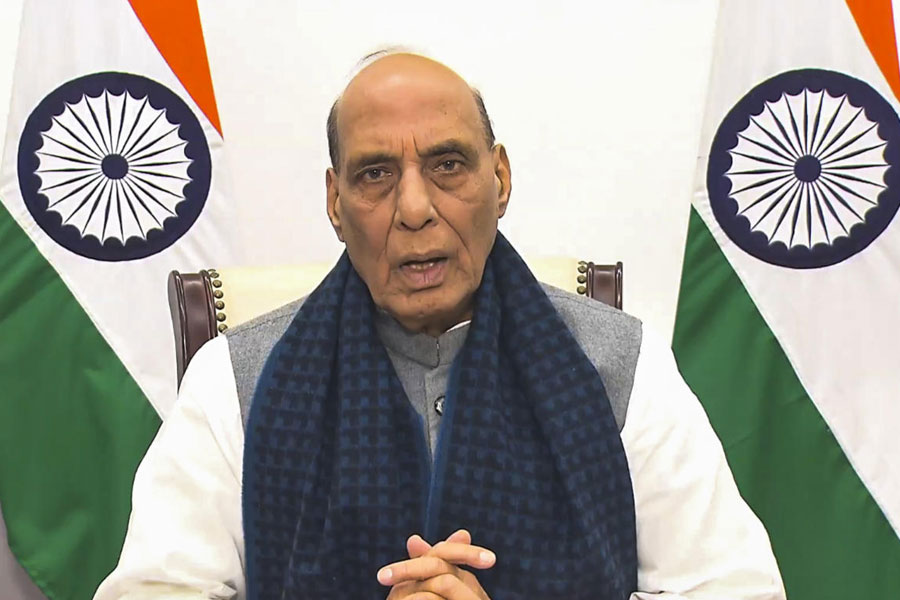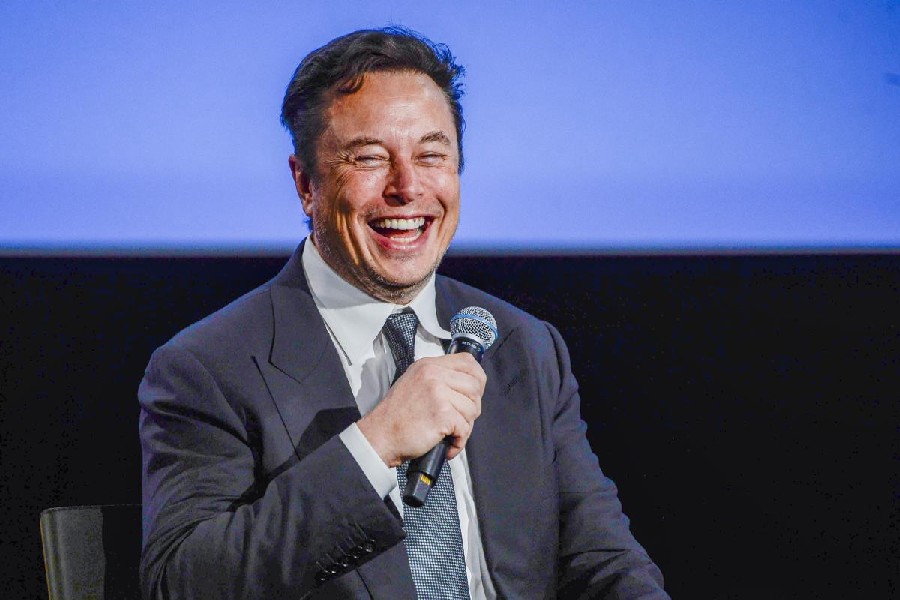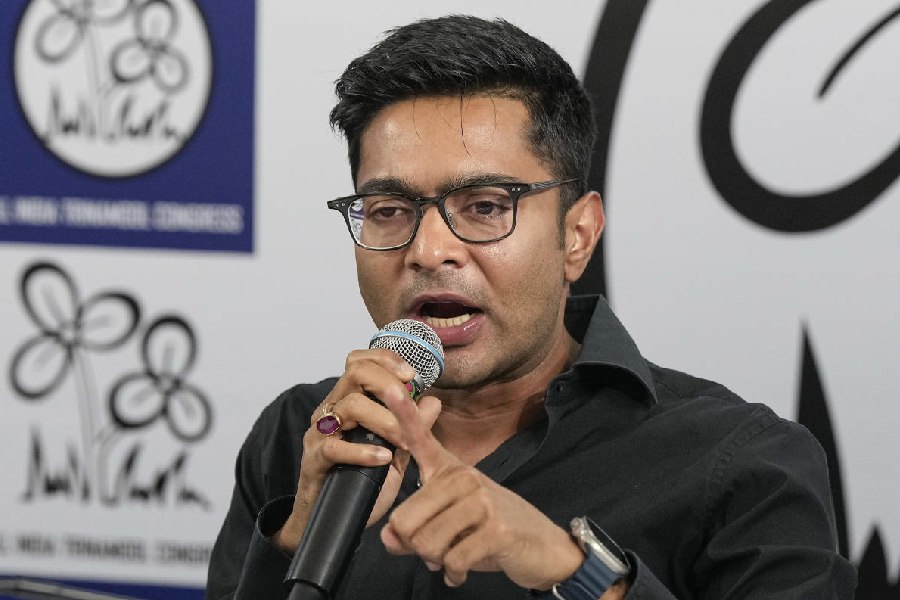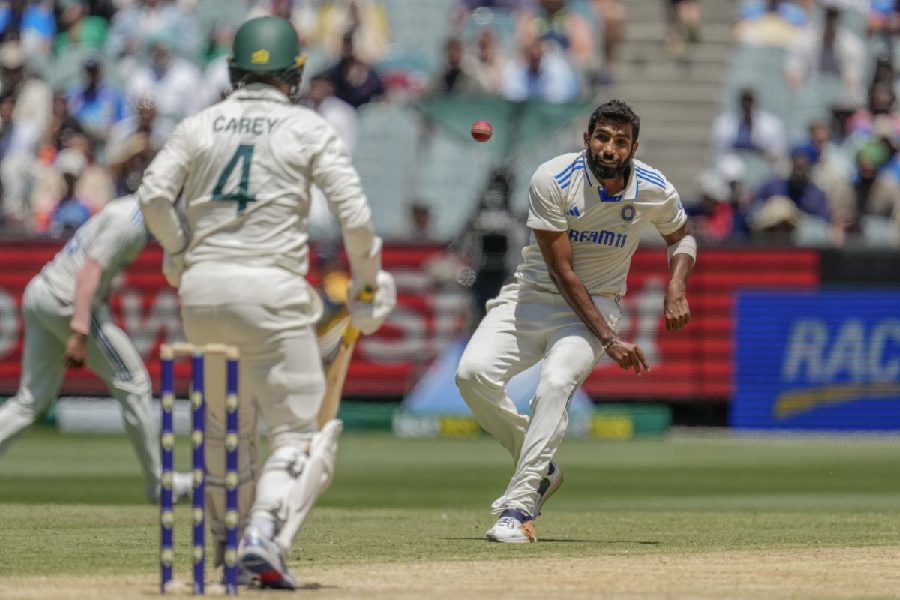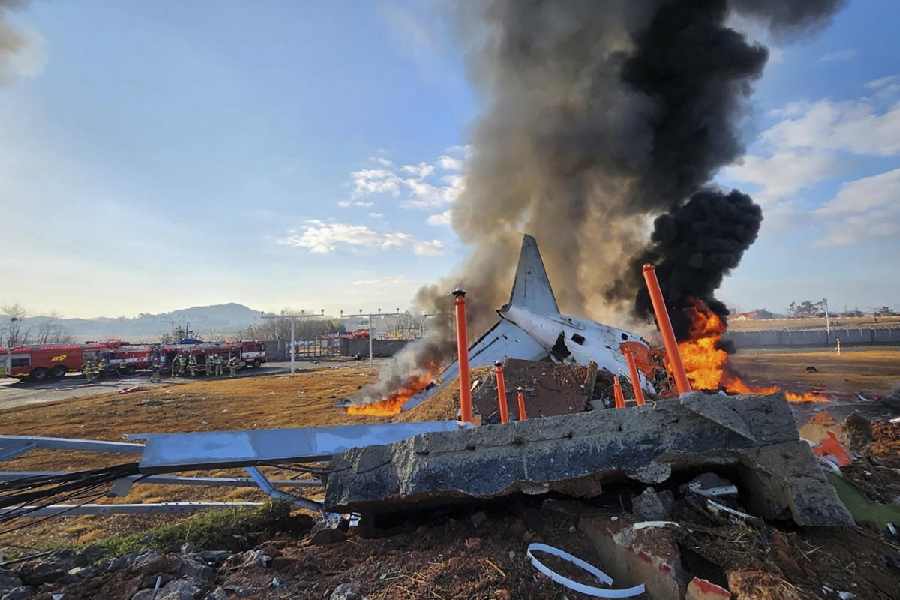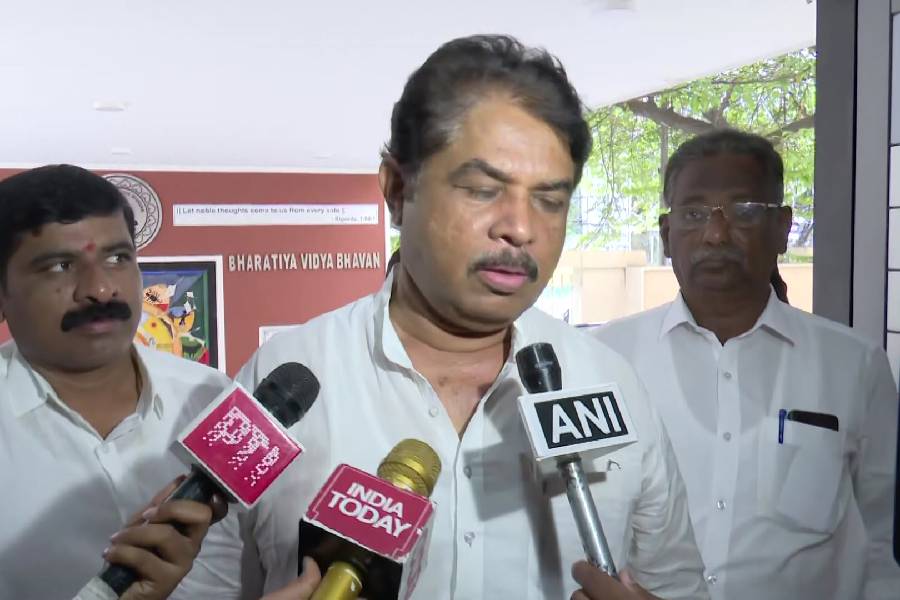The Supreme Court on Thursday observed that the Pegasus snooping allegations, if true, were no doubt “serious” and the “truth has to come out”.
Hearing a batch of petitions seeking a court-monitored probe into the Pegasus controversy, Chief Justice of India N.V. Ramana said: “No doubt the allegations are serious, if the reports are true…. Truth has to come out, that’s a different story. We don’t know whose names are there.”
The bench, which also had Justice Surya Kant, agreed to examine the Centre’s view on August 10. CJI Ramana said no order could be passed without hearing the government’s version on the allegations.
The court directed the petitioners to serve copies of their petitions on the Union government so that the matter could be taken up for further hearing on Tuesday.
The apex court said in a written order later: “Heard senior counsel appearing for the petitioners… at a considerable length. Let the matters be listed on Tuesday, the 10th August, 2021. In the meantime, learned AdvocateonRecord appearing for the petitioners are directed to serve copies of the Writ Petitions upon the Union of India well in advance.”
During the 45-minute hearing, the court directed one of the petitioners, advocate Manoharlal Sharma, to remove the names of Prime Minister Narendra Modi and Union home minister Amit Shah from his list of respondents. The other petitions don’t name the politicians as respondents.
A collective of 17 media organisations has claimed to have found in an investigation that phones in many countries had been infected with the Israeli spyware Pegasus for the purpose of snooping. In India, the list of those allegedly snooped on or selected as targets includes judges, senior politicians, journalists and rights activists.
The Modi government has stonewalled Opposition demands for discussions in Parliament on Pegasus and dismissed it as a “non-issue”. The Centre has not even clarified whether it had purchased the Pegasus spyware.
On Thursday, the Supreme Court initially felt that except for the petition filed by the Editors Guild of India, the others were not based on adequate research.
CJI Ramana wondered why no FIRs had been registered by the aggrieved persons and recalled that the allegations of intrusion had first surfaced in 2019.
“The surveillance issue came to light two years ago, why come now suddenly?” the CJI asked. “If you know your phone is hacked, why not file a criminal complaint?”
“We are not saying the petitions are based on hearsay and we cannot say there is no material, but with your access to international material, resources, the petitioners, some of them who are reputed persons and intellectuals, should have made more efforts,” Justice Ramana told senior advocate Kapil Sibal.
Sibal was appearing for veteran journalists N. Ram and Shashi Kumar.
Sibal said fresh evidence had emerged late on Wednesday that suggested that an old phone of a former Supreme Court judge and two ex-registrars of the top court had been on the list of potential Pegasus targets.
The Wire news portal reported on Wednesday that an old phone number of former Supreme Court judge Arun Mishra and the numbers of two officers of the Supreme Court registry were on the list that featured potential targets for surveillance.
Terming Pegasus a “rogue technology”, Sibal said that with the help of the spyware the government could intrude into the private lives of people.
“If I move around in my private moments, they can watch me. They can activate my camera, my mic…. Pegasus is a rogue technology that enters our lives without our knowledge. It is an assault on privacy, dignity and the value of our republic,” the senior counsel said.
Sibal added: “The government has to answer who purchased it? How much was spent? Where was the hardware placed? Why did the government not register the FIR? It’s a matter of our privacy. It is only the government that will be able to tell us facts.”
Senior advocate C.U. Singh, appearing for some of the petitioners, said the names of the individuals allegedly under surveillance were not known in 2019, when too there had been a flurry over snooping using Pegasus. He said the identities of the people had emerged now after forensic analysis, prompting the petitioners to approach the Supreme Court.
Senior advocate Meenakshi Arora, representing CPM Rajya Sabha member John Brittas, said then law and information technology minister Ravi Shankar Prasad had in 2019 told Parliament that to the best of his knowledge there had been no such surveillance. Since sufficient materials have surfaced now, it was necessary for the court to order a probe into the fresh allegations, Arora said.
Senior advocate Shyam Divan, appearing for academic Jagdeep Chhokkar whose phone was allegedly hacked with the help of Pegasus, said the US and French governments had ordered investigations into the allegations. Assailing the surveillance, he said it amounted to a “war by the government on the citizens”.
Arvind Datar, senior advocate representing journalist Rupesh Kumar Singh, quoted Section 43 of the IT Act to point out that it only provides for filing a suit for damages. There is no provision in criminal law for prosecution of officials responsible for hacking, Datar told the court.
He said that as of now the names of 300 people whose phones had been “hacked” had surfaced “God knows how many more names are there,” Datar said.
As soon as the hearing began, CJI Ramana told Sharma, the petitioner: “Mr Sharma, except newspaper cuttings, what is there in your petition?”
The court, however, clarified that it was not disbelieving news reports but said the petitioners must be able to collect independent materials to substantiate the allegations of illegal surveillance.
“You have added individual persons as respondents. We can’t issue notice, we know why you have named them. We are not here for your entertainment,” Justice Ramana told Sharma.
Justice Surya Kant pointed out that Sharma had not made the Centre a respondent and instead chosen to array the Prime Minister and the home minister.
The judge pointed out that Sharma had submitted a complaint to the CBI on June 21 seeking an investigation into the allegations of snooping, but on the very next day he filed a PIL in the Supreme Court.
Justice Surya Kant said the petitioner should have given a few days to the CBI to act on his complaint instead of rushing to the court.
Sharma offered to amend the memo of parties.
Later the court said in the written order: “…The Court is convened through Video Conferencing. Permission to appear and argue in person is allowed in Writ Petition (Civil) (M.L. Sharma). “As prayed, he is permitted to amend the Memo of Party.”

